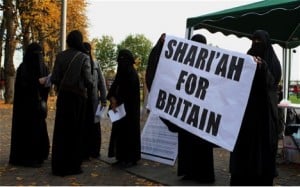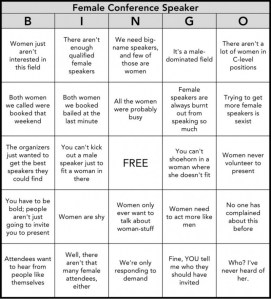At first glance, the film “Scheherazade, Tell Me a Story” seems to provide another viewpoint about women. However, its underlined notions of politics, patriarchy, gender and the nation are what make this film stand out.
Placed in Egypt, the film tells primarily the story of Hebba, a “modern” and “liberated” TV show hostess who has a very successful career. Her popular show deals with a number of political issues, ranging from corruption to religious extremism. Karim, Hebba’s husband, is a very successful reporter who has the opportunity to be editor-in-chief of a governmental newspaper. In his new role, Karim is asked to “control” his wife and make her focus her show on different issues; thus, he pressures Hebba to avoid political topics of any type in her show.
Their perfect marriage comes to an end when Hebba starts reporting on women’s issues at her husband’s request, only to realize that women and their sexuality are regulated politically. The effects of patriarchy find their way in their marriage through the political power that Mubarak’s regime was said to exercise in both the public and the private. Hebba realizes that despite her modern-Westernized experience, women in Egypt live double lives between tradition, modernity, religion and politics. She decides to bring women’s experience into her show, thinking that their stories will have nothing political. However, women’s love lives and sexualities prove to be the most political topics.
The first story focuses on Amany, a patient at a psychiatric clinic, who has refused to marry men who are unable to compromise. Amany, who is a strong woman, rails against men’s unwillingness to compromise beyond the very basics in a relationship. The way patriarchy intertwines with politics secludes women to traditional roles and to the authority of the husband; otherwise, they are secluded to the limits of society, like Amany in the psychiatric hospital.
Hebba’s second guest is Safa, an ex-convict who spent 15 years in jail for murder. After the death of their father, Safa and her sisters are forced to rely on other men to be able to survive. Betrayed by their uncle, who stole money from their business, Safa trusts Zaid, her father’s apprentice. Zaid helps the sisters out economically, but takes advantage of them by promising the three of them that he will marry them. Safa’s own reliance on the protection of men and on her religiosity prove insufficient to guarantee the sisters’ sexual integrity and even their familial bonds. She kills Zaid in a wrathful attack and she goes to jail. Safa’s story reflects these women’s inability to survive by themselves in settings where men can abuse women with impunity, and where the patriarchy is political.
Lastly, Hebba interviews Nahed, whom she met in the street when Nahed publically demonstrated against the government by questioning how the government chooses its ministers. Nahed is an upper-class woman who falls in love with the wrong man. The man, a government minister, marries her but then accuses her of adultery once she gets pregnant. Nahed finds that an adulteress pays a high financial price for her “crime” in Egypt. She later finds out that the man she had married had a record of taking advantage of upper-class women by accusing them of adultery Nahed’s story not only brings to light the workings of patriarchy in Egyptian society, but also the patriarchal nature of Egyptian politics.
Hebba becomes a guest in her own show when she is violently abused by Karim for “spoiling” his chances of getting a promotion. One is left to realize that despite Hebba’s Western look, successful career, and apparent “liberation,” she is absorbed into the political scene. Hebba’s story shows that neither liberation nor Westernization save a woman from patriarchal politics and the violence that they imply.
The men in the film are also connected with the political sphere. Amany gets involved with a man that works for a ministry and holds strongly to traditional gender roles. Safa’s uncle is supposed to be the protector of the family according to Shari’ah law, while Zaid is her father’s “adopted son” and “protector.” Nahed’s husband is a minister and a gold-digger. And Hebba’s husband is the perfect stereotype of “masculinity” when power corrupts him. Yet, the way patriarchy and politics relate bring to light men’s unwillingness to compromise, their lack of commitment, their betrayals, their violence and their corruption, which are all equated with the characteristics of the government.
The film portrays multifaceted notions of femininity that contest patriarchy and undermine political power one way or another. Although traditionally in many societies women are portrayed as a symbol of the nation and their sexualities are regulated through politics and religion, this film highlights women’s contentious agency. By refusing to marry, by killing a traitor, by demonstrating in the street and by bringing personal stories of violence and betrayal into the public realm, these women challenge the political order.
The film is particularly relevant in light of the recent political unrest in Egypt and the fall of Mubarak. All through the film, the women and the men involved relate their lives to politics and their “toxic” effect in people’s life. With Egypt’s successful revolution and the restructuring of the country, we are still left to see if things will change. Will politics still permeate the private sphere? Will politics’ ‘toxic’ effect invade every aspect of a woman’s life?
Thanks to Kamal Marayati for the tip!











